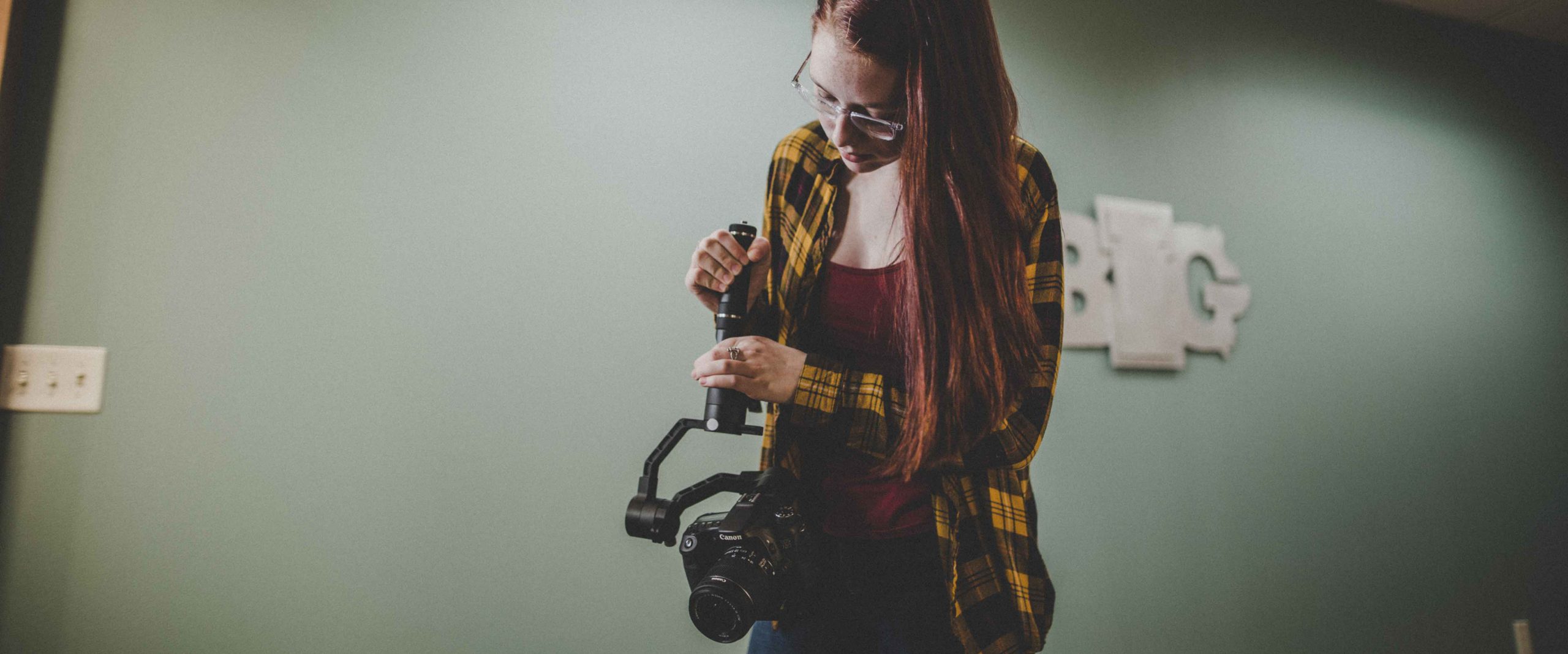The past few months have been challenging for students everywhere. But Paul Coffield, a high school junior from Memphis, has found a way to thrive: by picking up a video camera.
Coffield, a student at Crosstown High, an XQ school located in Memphis, Tennessee, has embraced filmmaking during the pandemic. The creativity, technical challenges, and the magic of storytelling have made all the difference, he said.
“Filmmaking has helped me through quarantine,” he said. “It helps me relax, makes me feel productive and creative. It makes this time less-of-a-bad-thing.”
Project-Based Learning from Home
Students across the country are turning to filmmaking this semester as a way to complement their academic learning with hands-on projects, and express themselves creatively during a time when many feel marginalized and uncertain about the future.
Whether students are attending classes in person or virtually, filmmaking—and storytelling generally—can be a powerful way to apply classroom lessons to real-world scenarios, and blend art with technology.
Filmmaking also promotes values such as Youth Voice and College and Career Readiness, as well as XQ Learner Goals like “Original Thinkers for an Uncertain World” and “Generous Collaborators.”
Creating Human-Centered, Community-Oriented Students Through Film
At Iowa BIG, an XQ program in Cedar Rapids, Iowa, students are working with the National Czech & Slovak Museum and Library to create 2-minute videos about the importance of sustainability and how the environment impacts their community.
Teacher Mark Matson said the project has ignited a passion among his students, an important milestone after a tough spring and summer of sheltering-in-place and distance learning.
“After all this time, they finally get to go into the community and do something they feel is meaningful,” he said. “They’re so excited about it, the ideas are just flowing. They’re just so excited to get to work.”
The students are focusing on a derecho—a severe windstorm—that swept through Cedar Rapids in August. With 140-mph winds, the storm ripped up trees, flipped over semi-trucks, blew patio furniture over houses, leveled cornfields. Residents were without power for days and had to contend with poor air and water quality.
The students’ films are focusing on climate change, extreme weather, and other topics related to how the community rallied to help each other after the storm.
In the process, they’re learning how to plan a complex project, conduct interviews, edit footage, work as a team, and tell an important story in a compelling way.
At PSI High, an XQ school in Seminole County, Florida, students got to meet virtually with Chris Olson, director of photography for the new Netflix documentary, “Speed Cubers,” about competitive Rubik’s Cube solvers.
The meeting was especially timely because some PSI High students are embarking on their own film projects.
“He gave them some really great information, like how to make the human story central, how to select a compelling context, and, since he is very young, he also talked about his path to get to the position at all,” said Angela Daniel, instructional and project design strategist at PSI High. “It was so fun for the kids and us.”
At Elizabethton High, an XQ school in eastern Tennessee, the drama teacher, Megan Foster, has tasked her students with making films this semester, since producing a play—in front of a live audience—is impossible due to social-distancing restrictions.
This way, students will be able to tell a story dramatically and learn filmmaking skills, and still get to present their works to family and friends.
It’s been an important way for students to express themselves creatively and have fun during a very challenging time, said Alex Campbell, a teacher at Elizabethton.
“At our school, we promote passionate communication. But since the pandemic, a lot of students have felt isolated, and like their voice doesn’t have as much impact,” he said. “This has been a great way for students to get their voice out there and heard.”
Building the Filmmakers of Tomorrow
Even before the pandemic, visual storytelling has been a part of the academic landscape at Elizabethton. The school’s new digital media program includes classes in virtual reality and digital arts, combining creativity with hands-on technical skills that can lead to high-paying jobs after graduation.
Last year, five students from Elizabethton submitted original films to a film festival hosted by a local drive-in. The event gave students a chance to showcase their talents before an audience and jump-start their dreams of becoming Hollywood filmmakers.
Coffield, the Crosstown High junior, is working on a fantasy film through a collaboration with Indie Memphis, an arts nonprofit that pairs local filmmakers with young artists.
It’s not his first effort behind the camera. At Crosstown, he’s made a film about urban sprawl for an environmental science project, and a film about cholesterol for a health class. He’s currently working on a short animation film about two strangers whose dreams intersect.
Last year, he also got to tag along with a documentary film crew that visited Crosstown, observing how they shoot a scene, interview people, and patch scenes together to make a fluid, cohesive film.
“I love stories, and I love things that are visual. This is a way to combine those two,” he said. “I love opportunities to create films in school. It makes it messier, but in a good way.”
If you’re interested in learning more about creating project-based learning experiences in your school, check out these XQ reads:
- These High School Students Had Paid Internships This Summer. Here’s How.
- How a Class of Young Writers Explored Climate Change Through Storytelling
- At This Innovative Urban High School, Project-Based Learning Addresses Environmental Justice







